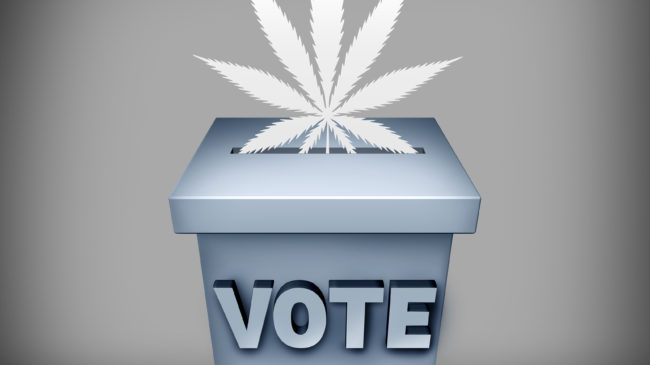When it came to decriminalizing drugs this election, it didn’t matter if a statewide ballot initiative was in a red state or a blue state—the ballot proposals pertaining to reforming drug policy passed with significant support.
As a result, recreational marijuana will soon be legal in four more states.
In Montana and South Dakota, a significant majority of voters approved legalizing adult-use marijuana. The measures in both states are fairly detailed but state agencies will be tasked with promulgating regulations for marijuana markets in 2021.
New Jersey voters approved legalizing adult-use marijuana by an even larger two-to-one margin in a very simple measure that now requires the state legislature to pass implementing legislation in 2021 and regulations to be created by the Cannabis Regulatory Commission.
Arizona voters, after voting down marijuana legalization in previous elections, finally approved it this year. Unfortunately, the approved measure is a mixed bag that does not really create a free market and gives incumbent medical marijuana firms control of the recreational market.
In each of the four states legalizing adult-use marijuana, 2021 will be a busy year of implementing rules created by the measure or promulgating new ones. All four states may well see both legislation to refine or develop additional requirements or restrictions and rulemaking by state agencies. It remains to be seen how much that process will be influenced by lessons learned in states that already went through the legalization process.
At the same time, Mississippi and South Dakota voters approved medical marijuana proposals. In South Dakota, a medical market will be rolled out in parallel with recreational marijuana markets and is unlikely to be complex or contentious.
Mississippi’s path to approving medical marijuana was a bit wild, with two competing measures making their way to the ballot this year. One was put on the ballot via a campaign to gather signatures from registered voters, and it took an approach to medical marijuana built on programs in other states and giving doctors control of prescribing. In response, the state legislature placed a very restrictive medical marijuana measure on the ballot under which the state would closely control prescribing medical marijuana. Voters overwhelmingly chose the first measure.
In both Mississippi and South Dakota final rules governing medical marijuana will be crafted by state agencies in 2021.
Reason Foundation’s drug policy experts will be offering technical assistance in all five states based on our framework and best practices for creating open, fair and free markets for adult-use marijuana. Legal cannabis markets that are overly restricted and taxed, for example, encourage the continuation of substantial black markets and should be avoided in each of these states.
The overall shifting views of the public on drug issues are evident in other initiatives. In Washington, D.C., voters approved a referendum stating it is the will of the voters that the police and prosecutors not pursue the criminal arrests or punishment of citizens violating laws governing psychedelic plants.
Finally, and importantly, Oregon’s voters approved the decriminalization of all drugs. Manufacturing and sale of illegal drugs will not be permitted in the state, but the possession and use of drugs will no longer be criminal. This approach is similar to the approach taken decades ago in Portugal, with great success. Rather than addressing drug use with arrest, prosecution, and incarceration, Oregon will seek to curtail drug abuse through four approaches:
- Patient-centered treatment, including through addiction recovery centers that offer 24-hour triage centers to meet with patients and enroll them into evidence-based recovery programs;
- Peer support and recovery services to maintain contact with each patient, monitor their progress and sobriety, and provide mentorship;
- Transitional housing for drug-addicted patients who need to get off the street and find employment; and
- Harm-reduction interventions to ensure drug use does not result in avoidable deaths or the spread of disease.
Collectively, these actions by voters represent a long-overdue attempt to change the course of how we deal with adult-use of drugs and the problems of drug abuse in America. These shifts away from the failed War on Drugs that has created massive collateral damage throughout society to an evidence-based harm reduction approach are important and positive steps.

